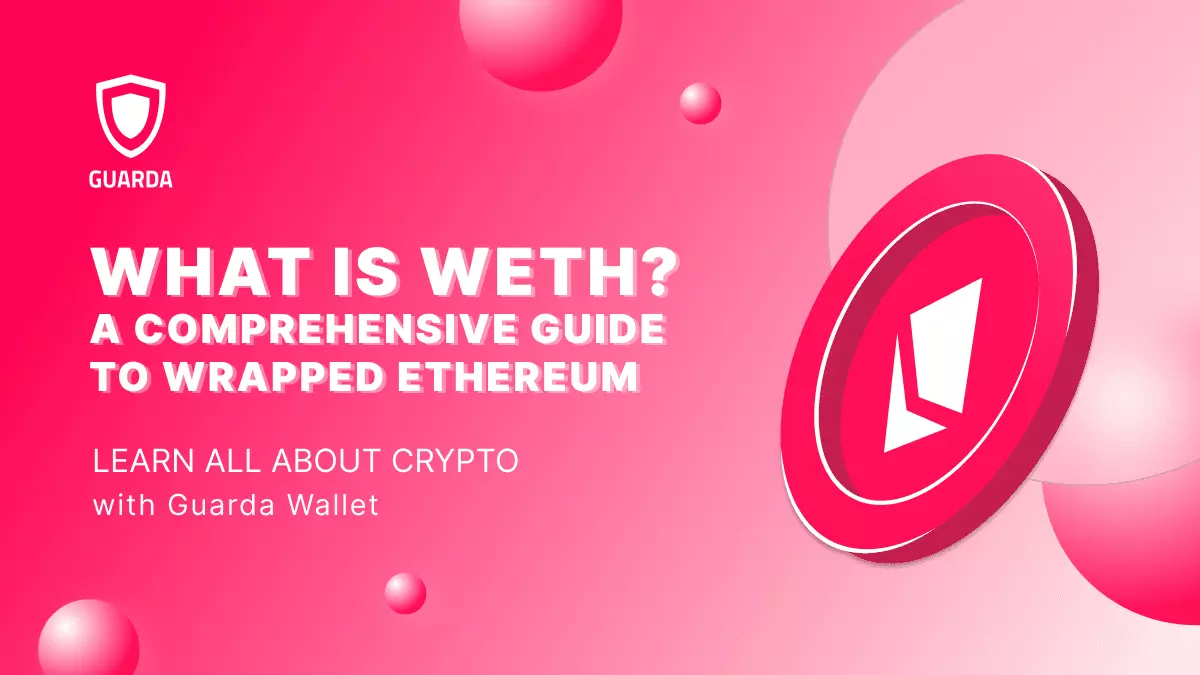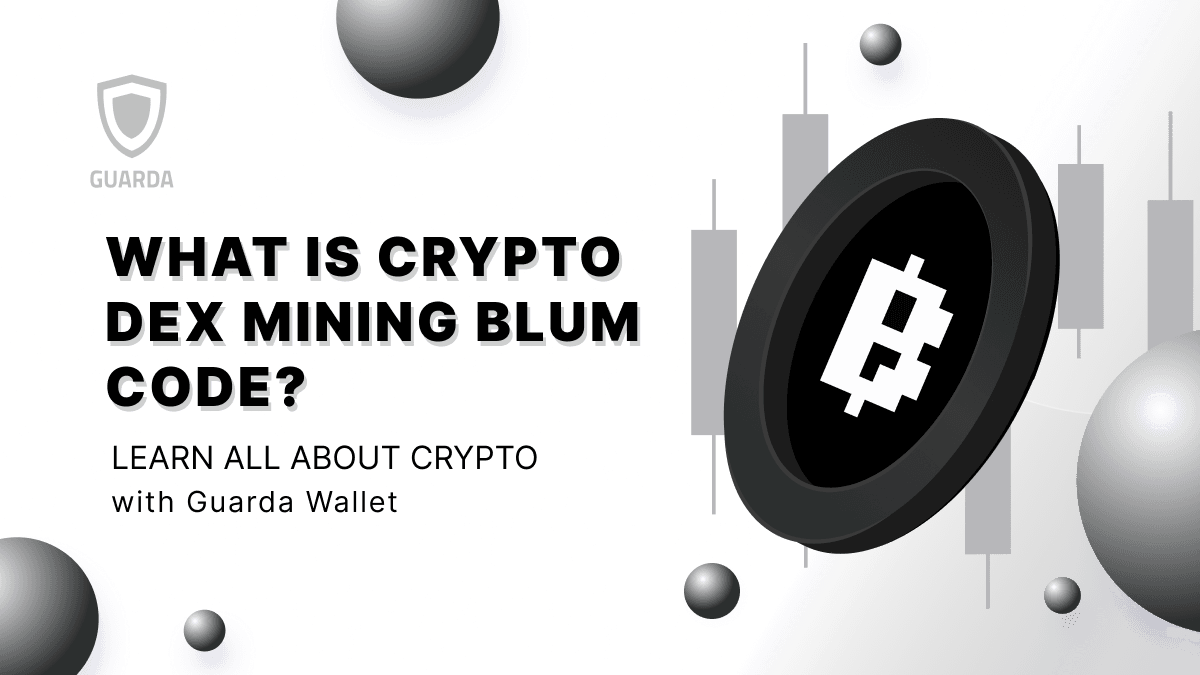Understanding WETH: Wrapped Ethereum Explained
Ethereum (ETH) is the second-largest cryptocurrency by market capitalization and is widely used in DeFi, NFTs, and smart contracts. However, Ethereum’s native token does not adhere to the ERC-20 standard, which is crucial for interoperability within the Ethereum blockchain. This is where WETH comes into play.
Wrapped Ethereum (WETH) is an ERC-20 token that represents ETH in a wrapped form. It allows ETH holders to engage seamlessly in DeFi applications, WETH on decentralized exchanges, and other smart contract-based platforms. In essence, WETH enhances Ethereum’s compatibility with various ERC-20 protocols, enabling smoother transactions.
Stay turned with the latest news and updates by joining us on Twitter.
— @GuardaWallet
WETH vs ETH: Key Differences
When comparing WETH vs ETH, the primary distinction is that ETH itself is not ERC-20 compliant, while WETH is. This means that while ETH can be used for gas fees and executing smart contracts, it cannot directly interact with ERC-20 protocols without conversion. On the other hand, WETH functions like any other ERC-20 token, making it more adaptable within DeFi ecosystems.
Another key difference lies in usability. When engaging in decentralized exchanges (DEXs), liquidity pools, and yield farming, users often need ERC-20 tokens. Instead of swapping ETH for a different token, users can simply convert it to WETH, ensuring smoother integration into various protocols.
How to Use WETH in DeFi
WETH plays a crucial role in WETH liquidity pools and decentralized applications. It is commonly used for:
-
Liquidity Provision: Many DEXs require ERC-20 tokens to participate in liquidity pools. Users can deposit WETH into these pools and earn rewards.
-
Yield Farming: DeFi protocols often offer yield farming opportunities where users stake WETH to earn interest.
-
NFT Transactions: WETH in NFT platforms like OpenSea is widely used for auctions and purchases since most NFTs operate on ERC-20-compatible smart contracts.
-
Trading Pairs: Many DEXs offer WETH trading pairs, allowing for easy swaps between different cryptocurrencies.
Converting ETH to WETH and Unwrapping WETH
To participate in the ERC-20 ecosystem, users must understand the process of converting ETH to WETH. This typically involves sending ETH to a smart contract that mints an equivalent amount of WETH. The ETH is locked in the contract, and an equivalent amount of WETH is issued to the user’s wallet.
The process of unwrapping WETH is just as straightforward. Users send WETH back to the smart contract, which then releases the corresponding amount of ETH back to their wallet. This conversion process incurs minimal WETH transaction fees, making it efficient and cost-effective.
Why Wrap Ethereum? Advantages of WETH
Many users wonder, why wrap Ethereum when ETH is already widely accepted? The answer lies in its benefits:
- Seamless DeFi Integration: Since most DeFi applications operate with ERC-20 tokens, wrapping Ethereum ensures compatibility.
- Enhanced Liquidity: WETH increases participation in WETH liquidity pools, boosting market depth and reducing slippage.
- Efficient Trading: WETH allows for WETH trading pairs on decentralized exchanges, facilitating smooth transactions.
- Lower Fees: Compared to using ETH directly in some platforms, WETH can sometimes offer reduced WETH transaction fees due to optimized contract interactions.
WETH Smart Contract and Wallet Compatibility
A crucial aspect of WETH is its reliance on a secure WETH smart contract, which ensures that the wrapped tokens maintain a 1:1 ratio with ETH. This guarantees transparency and security for users participating in DeFi activities.
As for WETH wallet compatibility, most Ethereum-compatible wallets, such as Guarda Wallet, support WETH. Guarda Wallet provides users with a secure and intuitive interface to manage, swap, and trade WETH effortlessly.
Guarda Wallet and Seamless WETH Swaps
Guarda Wallet has successfully integrated Bridgers API, enabling seamless swaps for select coins, including ETH and BSC. This makes it easier than ever for users to interact with different networks and engage in cross-chain transactions. But that’s just the beginning! More networks are being added this week, further enhancing accessibility.
Additionally, Guarda Wallet’s mobile app will soon support these features, allowing for even greater convenience.
How to Get WETH
For those wondering how to get WETH, there are multiple ways to acquire it:
DEX Swaps: Convert ETH to WETH on decentralized exchanges like Uniswap, SushiSwap, or Guarda Wallet’s built-in swap feature. Bridgers API: With Guarda Wallet’s integration, users can now swap ETH for WETH seamlessly. Direct Wrapping: Use smart contracts on platforms like OpenSea or DeFi protocols to wrap Ethereum manually.
WETH Use Cases in Crypto Trading
WETH is a vital asset for crypto traders, enabling them to participate in various activities across the blockchain:
Efficient Trading: WETH allows traders to access deep liquidity on decentralized exchanges. Arbitrage Opportunities: Since WETH is commonly paired with multiple assets, traders can take advantage of price differences across exchanges. DeFi Lending: Users can stake WETH as collateral in lending protocols to borrow other cryptocurrencies.
WETH vs ERC-20 Tokens: Key Considerations
While WETH is an ERC-20 token, it differs from other ERC-20 assets in that it directly represents Ethereum. Unlike stablecoins or governance tokens, WETH maintains a 1:1 peg with ETH and serves as a bridge between Ethereum’s native currency and the DeFi ecosystem.
Conclusion
Wrapped Ethereum (WETH) has become a cornerstone of the DeFi and NFT markets, offering enhanced usability, liquidity, and compatibility within the Ethereum ecosystem. By understanding how to use WETH and its role in WETH liquidity pools, WETH in NFT platforms, and trading, users can maximize their crypto experience.
With Guarda Wallet’s DEX integration, swapping between ETH, BSC, and other networks has never been easier. And with mobile support coming soon, accessing and utilizing WETH will become even more convenient for traders and DeFi enthusiasts alike.
As the crypto world continues to evolve, WETH remains a powerful tool, bridging Ethereum’s potential with the expanding DeFi landscape.







